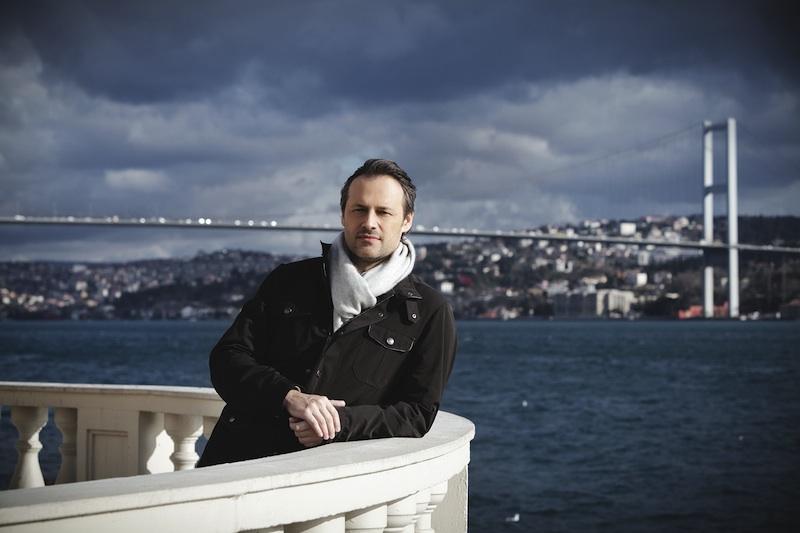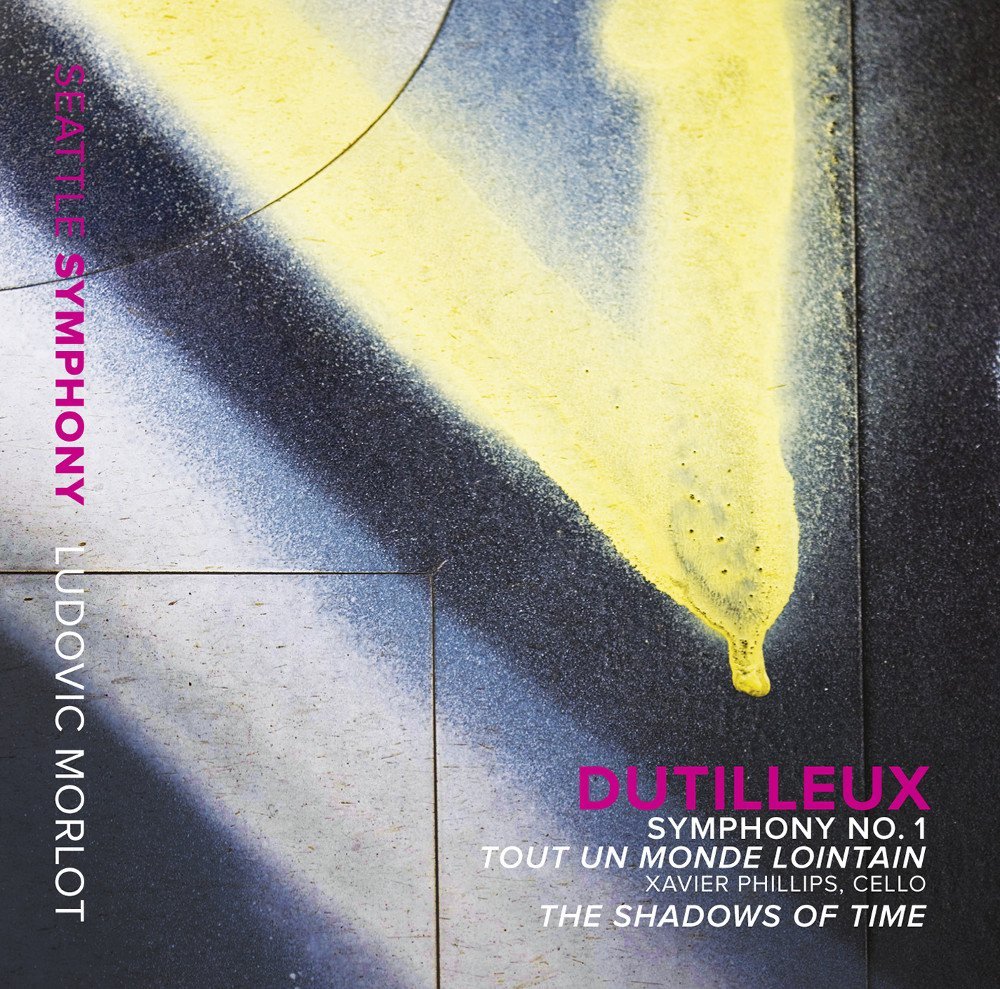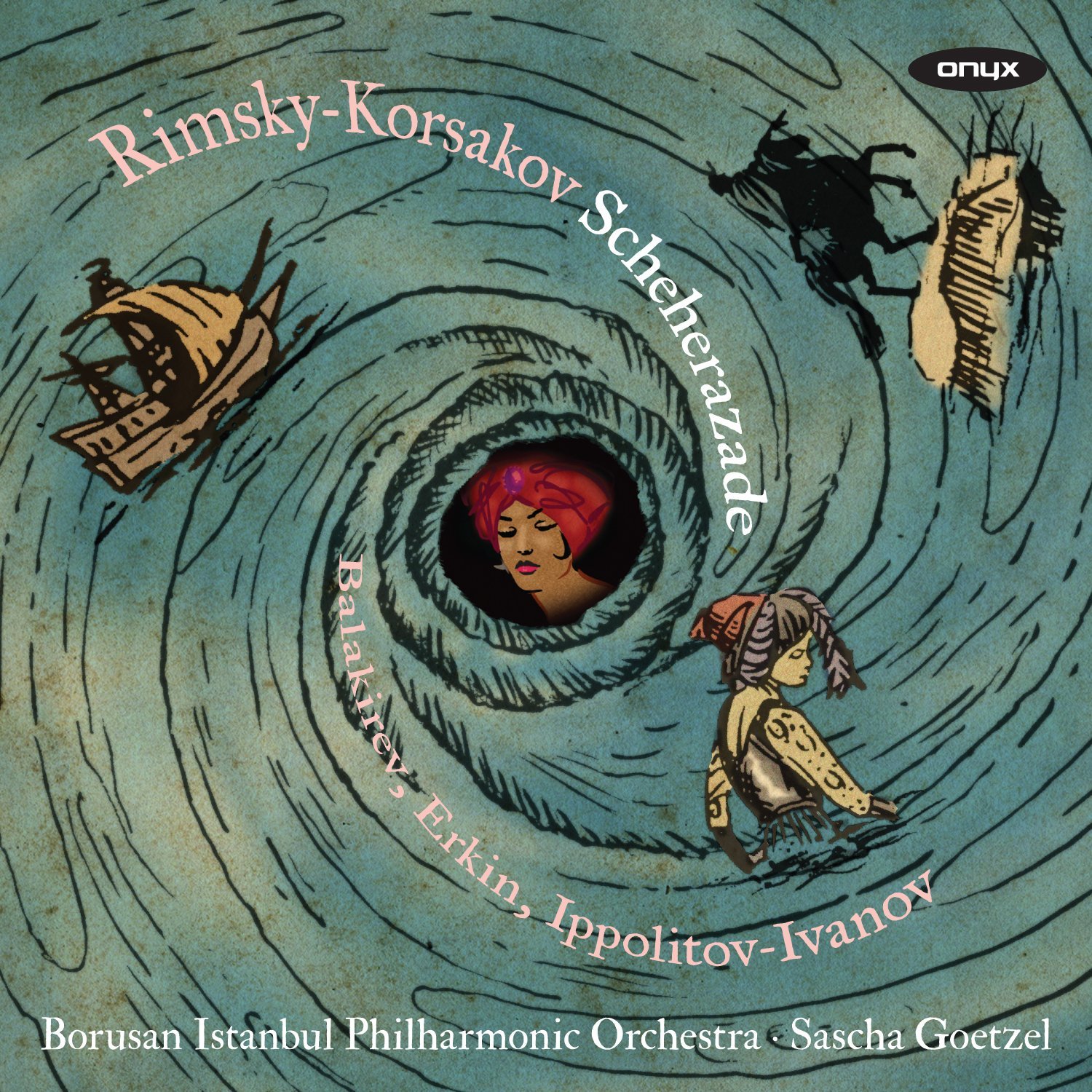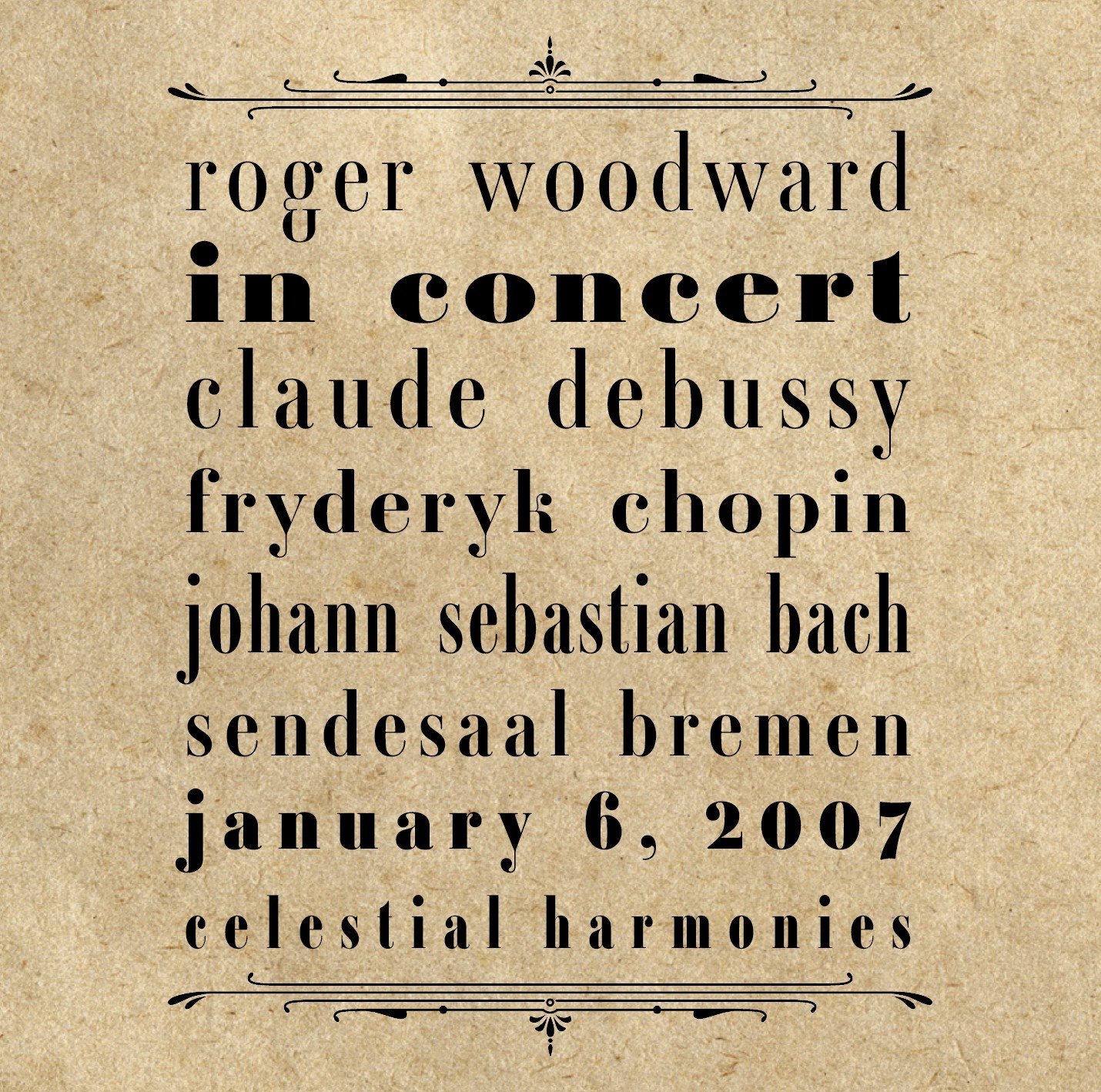Classical CDs Weekly: Dutilleux, Rimsky-Korsakov, Roger Woodward | reviews, news & interviews
Classical CDs Weekly: Dutilleux, Rimsky-Korsakov, Roger Woodward
Classical CDs Weekly: Dutilleux, Rimsky-Korsakov, Roger Woodward
20th century French orchestral music, a Russian war horse in a definitive performance, and a live recital from a master pianist

 Dutilleux: Symphony no 1, Tout un monde lontain, The Shadows of Time Xavier Phillips (cello), Seattle Symphony/Ludovic Morlot (Seattle Symphony Media)
Dutilleux: Symphony no 1, Tout un monde lontain, The Shadows of Time Xavier Phillips (cello), Seattle Symphony/Ludovic Morlot (Seattle Symphony Media)
As symphonic openings go, this has to be one of the subtlest and most mysterious, a pizzicato passcaglia theme emerging imperceptibly on double bass. You’re reminded of the passacaglia from Britten’s Peter Grimes, as what happens above each repetition can bear little obvious relation to the theme. Then it’ll suddenly coalesce for a fleeting moment, the bass line punchier, as if it’s emerging through cigar smoke in a nightclub. Henri Dutilleux’s Symphony no 1 was completed in 1951. I’ve played the first movement to several smart listeners, none of whom had any idea who it could have written it. Lutoslawski? Messiaen? Ravel? Google this most fastidious of French composers and you’ll probably come across the word "refinement". And, orchestrally, this symphony is brilliantly realised. Swooping string lines have an iridescent sheen. Debussian haze dissolves into crisp, neo-classical clarity. It’s rarely recorded, and seldom performed, making this live Seattle recording even more welcome. Conductor Ludovic Morlot worked with the composer in 2001, and this warm, technically assured performance feels as if it’s repaying an act of friendship.
Rostropovich commissioned and recorded Dutilleux’s 1970 concerto Tout un monde lontain, each of the five movements prefaced by a quote from Baudelaire’s Les fleurs du mal. French young French cellist Xavier Phillips captures the work’s heady poetry. He’s nicely accompanied by Morlot – especially in the ravishing fourth section, Miroirs. There’s also The Shadows of Time, a 1995 work prompted by the 50th anniversary of the end of WW2. Ticking woodblocks suggest the passing of time, the unwilling loss of memory. Three boy sopranos appear in the heartstopping third section, dedicated to Anne Frank. The work’s close, a sequence of soft, stuttering unison notes, is exquisite. A wonderful introduction to a rewarding composer.
 Rimsky-Korsakov: Scheherazade, plus music by Balakirev, Ippolitov-Ivanov and Erkin Borusan Istanbul Philharmonic Orchestra/Sacha Goetzel (Onyx)
Rimsky-Korsakov: Scheherazade, plus music by Balakirev, Ippolitov-Ivanov and Erkin Borusan Istanbul Philharmonic Orchestra/Sacha Goetzel (Onyx)
As with last week’s scintillating Dvořák disc, there’s enormous pleasure to be had when an over-familiar, hackneyed work receives a belter of a performance. Hearing a piece as if for the first time is a rare treat, and Rimsky-Korsakov’s Scheherazade emerges pristine on this new disc. It’s superbly played here by Sacha Goetzel’s enterprising Borusan Istanbul Philharmonic, a team which greatly impressed David Nice at their Proms debut last week. Goetzel’s greatest achievement is to knit the disparate elements together so effectively, and the suite has rarely sounded so symphonic and well-constructed. Rimsky-Korsakov’s knack with a tune can work against him, but Scheherazade is tautly and neatly constructed. Which isn’t to say that Goetzel conducts the work as if it’s Brahms. Sit back and marvel at the effortless control – the swelling grandeur of the first movement’s big melody, every repetition bigger, more colourful. Check out the swooning high cellos in the final minutes. Prefacing the second and fourth movements with the traditional sounds of the oud and the qanun (traditional Arabic variants of the lute and zither) isn’t a gimmick, serving instead to reinforce the exoticism of the orchestral writing. The slow third movement is deliciously sultry, and the Festival of Baghdad is riotous in all the right places. Pelin Halkaci’s violin solos aren’t unnecessarily spotlit. It’s splendid, in other words.
As are the couplings. Lyapunov’s exuberant transcription of Balakirev’s Islamey isn’t heard enough, and rarer still are two of Ippolitov-Ivanov’s Caucasian Sketches. In this recording, a Turkish ney flute plays the cor anglais solo opening In a Village, and there’s augmented percussion in the Procession of the Sardar. Both are irresistible, and there’s a bonus in the form of Turkish composer Ulvi Cemal Erkin’s spectacular, rhythmically quirky Köçekçe: dance rhapsody for orchestra. Good production values and neat artwork too.
 Roger Woodward in Concert: music by Debussy, Chopin and Bach Roger Woodward (piano) (Celestial Harmonies)
Roger Woodward in Concert: music by Debussy, Chopin and Bach Roger Woodward (piano) (Celestial Harmonies)
Australian pianist Roger Woodward’s low profile in the UK is a source of continuing regret. He does make occasional visits, popping up on Radio Three’s In Tune last week. He achieved fame as a fearless interpreter of contemporary music in the 1970s, working with the likes of Xenakis, Boulez and Berio. Woodward taped a pioneering set of Shostakovich’s 24 Preludes and Fugues, and more recent recordings have included some exquisite Debussy and Chopin. His version of Bach’s Well-Tempered Clavier is one of the very best. This 2007 live recital followed a visit to Bremen to record Hans Otte’s Book of Hours; Woodward was so beguiled by the Bösendorf in the concert hall of Bremen Radio that he agreed to return and give a live recital. The recorded piano sound is sensational here, the bass thrillingly resonant. Debussy, Chopin and Bach make very particular technical and interpretative demands on any player. Debussy’s second book of Préludes glows in Woodward’s hands. The music’s modernity is smartly expressed, though there’s enough sensuality and warmth to avoid chilliness. La Puerta del Vino’s stuttering habanera is a highlight, along with a graceful account of Ondine. The descending glissando one minute from the close of Feux d’artifice might shock. Rightly so, as Woodward follows Xenakis’s performance tip and plays it with his fist. Wonderful stuff.
Maybe the three Chopin Mazurkas which follow are a little too extrovert; Woodward’s studio versions have a greater intensity. They’re remarkably played though, and an ideal palate cleanser before a refreshing trot through Bach’s E minor Partita. Few pianists are this good at highlighting Bach’s cerebral brilliance, though Woodward never makes us feel intimidated. The long Sarabande has heartfelt sincerity. The concluding Gigue builds magnificently, the final flourish a fitting end to a superb recital.
Explore topics
Share this article
The future of Arts Journalism
You can stop theartsdesk.com closing!
We urgently need financing to survive. Our fundraising drive has thus far raised £49,000 but we need to reach £100,000 or we will be forced to close. Please contribute here: https://gofund.me/c3f6033d
And if you can forward this information to anyone who might assist, we’d be grateful.

Subscribe to theartsdesk.com
Thank you for continuing to read our work on theartsdesk.com. For unlimited access to every article in its entirety, including our archive of more than 15,000 pieces, we're asking for £5 per month or £40 per year. We feel it's a very good deal, and hope you do too.
To take a subscription now simply click here.
And if you're looking for that extra gift for a friend or family member, why not treat them to a theartsdesk.com gift subscription?
more Classical music
 Dunedin Consort, Butt / D’Angelo, Muñoz, Edinburgh International Festival 2025 review - tedious Handel, directionless song recital
Ho-hum 'comic' cantata, and a song recital needing more than a beautiful voice
Dunedin Consort, Butt / D’Angelo, Muñoz, Edinburgh International Festival 2025 review - tedious Handel, directionless song recital
Ho-hum 'comic' cantata, and a song recital needing more than a beautiful voice
 Classical CDs: Dungeons, microtones and psychic distress
This year's big anniversary celebrated with a pair of boxes, plus clarinets, pianos and sacred music
Classical CDs: Dungeons, microtones and psychic distress
This year's big anniversary celebrated with a pair of boxes, plus clarinets, pianos and sacred music
 BBC Proms: Liu, Philharmonia, Rouvali review - fine-tuned Tchaikovsky epic
Sounds perfectly finessed in a colourful cornucopia
BBC Proms: Liu, Philharmonia, Rouvali review - fine-tuned Tchaikovsky epic
Sounds perfectly finessed in a colourful cornucopia
 BBC Proms: Suor Angelica, LSO, Pappano review - earthly passion, heavenly grief
A Sister to remember blesses Puccini's convent tragedy
BBC Proms: Suor Angelica, LSO, Pappano review - earthly passion, heavenly grief
A Sister to remember blesses Puccini's convent tragedy
 BBC Proms: A Mass of Life, BBCSO, Elder review - a subtle guide to Delius's Nietzschean masterpiece
Mark Elder held back from blasting the audience with a wall of sound
BBC Proms: A Mass of Life, BBCSO, Elder review - a subtle guide to Delius's Nietzschean masterpiece
Mark Elder held back from blasting the audience with a wall of sound
 BBC Proms: Le Concert Spirituel, Niquet review - super-sized polyphonic rarities
Monumental works don't quite make for monumental sounds in the Royal Albert Hall
BBC Proms: Le Concert Spirituel, Niquet review - super-sized polyphonic rarities
Monumental works don't quite make for monumental sounds in the Royal Albert Hall
 Frang, Romaniw, Liverman, LSO, Pappano, Edinburgh International Festival 2025 review - sunlight, salt spray, Sea Symphony
Full force of the midday sea in the Usher Hall, thanks to the best captain at the helm
Frang, Romaniw, Liverman, LSO, Pappano, Edinburgh International Festival 2025 review - sunlight, salt spray, Sea Symphony
Full force of the midday sea in the Usher Hall, thanks to the best captain at the helm
 Elschenbroich, Grynyuk / Fibonacci Quartet, Edinburgh International Festival 2025 review - mahogany Brahms and explosive Janáček
String partnerships demonstrate brilliant listening as well as first rate playing
Elschenbroich, Grynyuk / Fibonacci Quartet, Edinburgh International Festival 2025 review - mahogany Brahms and explosive Janáček
String partnerships demonstrate brilliant listening as well as first rate playing
 BBC Proms: Akhmetshina, LPO, Gardner review - liquid luxuries
First-class service on an ocean-going programme
BBC Proms: Akhmetshina, LPO, Gardner review - liquid luxuries
First-class service on an ocean-going programme
 Budapest Festival Orchestra, Iván Fischer, Edinburgh International Festival 2025 review - mania and menuets
The Hungarians bring dance music to Edinburgh, but Fischer’s pastiche falls flat
Budapest Festival Orchestra, Iván Fischer, Edinburgh International Festival 2025 review - mania and menuets
The Hungarians bring dance music to Edinburgh, but Fischer’s pastiche falls flat
 Classical CDs: Hamlet, harps and haiku
Epic romantic symphonies, unaccompanied choral music and a bold string quartet's response to rising sea levels
Classical CDs: Hamlet, harps and haiku
Epic romantic symphonies, unaccompanied choral music and a bold string quartet's response to rising sea levels

Add comment